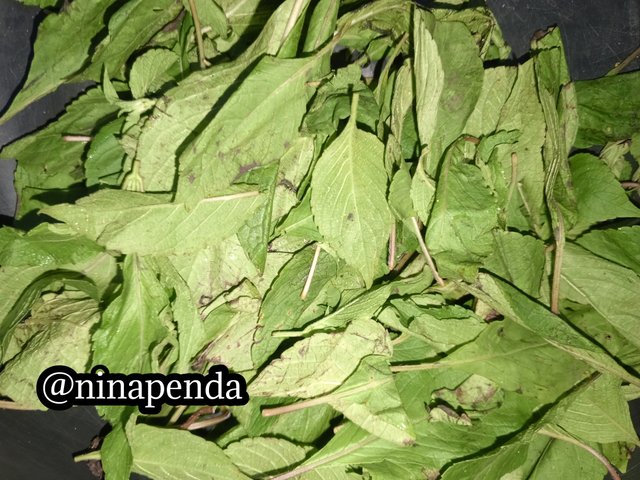 Image designed in pixellab Image designed in pixellab |
|---|
Research Assignment: Research and write a history of herbal medicine in your culture or region. (2 marks) |
|---|
Herbal medicine in Nigeria has roots that go back to the time before colonial influence, long before modern practices arrived. People living close to nature began to explore the plants around them, realizing their potential benefits. The exploration of various leaves is believed to have begun when someone noticed a wounded animal healing after chewing on a particular leaf the next day. This knowledge and the results of these experiments were shared through generations, becoming a deep part of our culture that continues today.
Herbal medicine was one of the earliest ways people survived before modern medicine. In my Igbo culture, these practitioners are known as Dibia. Herbalists provided remedies for both physical and spiritual issues.
When colonial powers introduced modern medicine, it reduced the use of herbal remedies. However, after Nigeria gained independence in 1960, interest in herbal medicine grew again. More research has been done, and now over 300 ethnic groups in Nigeria use herbal treatments.
Some of the herbs used in my culture includes; Mangifera indica, pawpaw leaves Bitterleaf, zobo leaves, basil, nutmeg, turmeric, ginger, garlic, scent leaves, rosemary, mornings and aloe era.
Create a table comparing the benefits and side effects of modern medicines vs. herbal medicines for common ailments (e.g., cold, headache) |
|---|
| S/N | Modern medicines | Herbal medicines |
|---|---|---|
| Anxiety/Stress | Benefits: Quick relief using prescribed drugs. Possible side effects include addiction risk, feeling dizzy, tiredness. | Benefits: Provides a soothing effect, offers lasting benefits with minimal side effects. Side Effects: Might not be strong enough for intense anxiety, and there could be rare allergic reactions. |
| Cold/flu | Benefits: Quick relief, swiftly lessens symptoms. Possible side effects include feeling sleepy, nausea, and risk of becoming dependent. | Benefits: Supports the immune system naturally, calms the throat, and lessens mild symptoms. Possible side effects include allergic reactions in some people and a slower response time. |
| Cough | Benefits: Fast relief from symptoms, tailored formulas. Possible side effects include feeling sleepy, and risk of using too much. | Benefits: Kind to the body, helps calm and promotes healthy breathing. Possible side effects include a slower reaction time and an unpleasant taste. |
| Migraine | Benefits: Good pain relief. Possible side effects include liver damage from excessive use and irritation of the stomach. | Benefits: Less use of chemicals, lower chance of addiction, overall health approach. Possible side effects include mild stomach problems if taken too much. |
Herb Identification: Choose 3 herbs from your kitchen, like mint, ginger, or turmeric, and list their health benefits. Mention the recipes where you have used these herbs. (2 marks) |
|---|
 Garlic Garlic |  Ginger Ginger |  Tumeric Tumeric |
|---|
Benefits of Ginger
• Ginger is known to ease indigestion and nausea. Its anti-inflammatory qualities contribute to this effect. During the pandemic, many people used ginger in warm teas and other mixtures to help fight colds and boost their immune systems.
• This herb has gingerol and shogaol, which can help lessen pain and swelling. Women often peel it, soak it in hot water, and drink it during their menstrual flow to ease cramps.
• To boost immune systems and combat flu and viruses. Its antimicrobial qualities assist in this process and can also help with coughs and sore throats.
Benefits of Garlic
• Additionally, promote better digestive health.
• Support heart health by managing cholesterol, blood pressure, and blood clotting.
• Aid in cancer prevention, significantly lowering the chances of colon, prostate, and breast cancers.
• Strengthen the immune system with antimicrobial, antiviral, and antifungal benefits.
Benefits of Tumeric
Turmeric is important for weight loss. It contains curcumin, which can boost brain function and may assist Alzheimer’s patients. It also reduces inflammation and supports digestion by increasing bile production in the liver, which helps break down fats. Additionally, turmeric is beneficial for the skin and can treat conditions like eczema. It also supports liver health, aiding in detoxification.
I have used and still use these herbs in preparation of stew, Jollof rice and other dishes. They give my dish a nice scent and it contains an amount of health benefits that I won't love to miss out.
Write about the different forms of the herbs. |
|---|
Herbs come in many types that can benefit people and can be used in different ways. For example, some roots need to be dried to work, while others need to be fresh. These different forms of herbs include:
Herbal teas are made from dried herbs that are steeped in hot or warm water to create the tea. One example is green tea, which contains beneficial properties and is consumed as a tea.
Dried herbs are essentially fresh herbs that have undergone air-drying to eliminate moisture from their leaves, thereby preserving their essence and concentrating their flavors. These herbs are primarily utilized in the preparation of teas and various culinary dishes. Examples of such dried herbs include thyme and rosemary. These herbs are integral to cooking and can also provide benefits when consumed.

Fresh herbs come from the leaves, stems, or flowers of plants. They are collected while still fresh. These herbs are full of vitamins that have health benefits and are also used in cooking. Some examples of fresh herbs include thyme and vinegar leaves. These leaves can be used for making teas, cooking, and also for medicine.
Herbal tinctures are made by soaking herbs in alcohol for one week, which helps extract their function. In my country, we often see roots and leaves placed in a bottle, and then we add alcohol to enhance the mixture. These tinctures are very useful for treating stomach issues and other health problems.
Pick one herb and research any potential side effects and how to avoid them. |
|---|
Rosemary
Rosemary is usually safe when taken in suggested amounts, but it may cause side effects if taken in high doses. Some side effects includes;
Allergies:
Rosemary may lead to skin problems like irritation, redness, and itching, as well as breathing difficulties.
Seizure:
Strong rosemary oil can cause seizures, particularly in those who are already at risk for seizures or epilepsy.
Hypertension:
Drinking too much can result in low blood pressure leading to feelings of dizziness or even fainting.
Miscarriage
Pregnant women should avoid taking rosemary as a supplement because it can lead to miscarriage.
How to avoid them
To avoid effects from rosemary herbs, you can; dilute rosemary oil before taking them because undiluted rosemary oil can cause kidney irritation and vomiting.
You can consume just a little amount of rosemary herbs. When consumed in large quantities, can cause skin redness and vomiting.
Consult a doctor before imbibing self medication.
